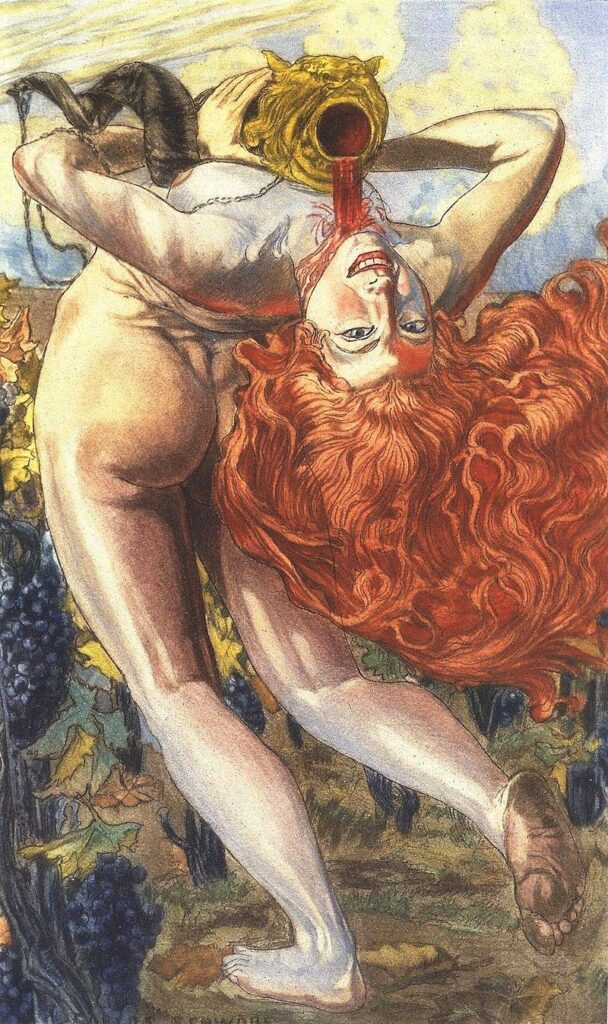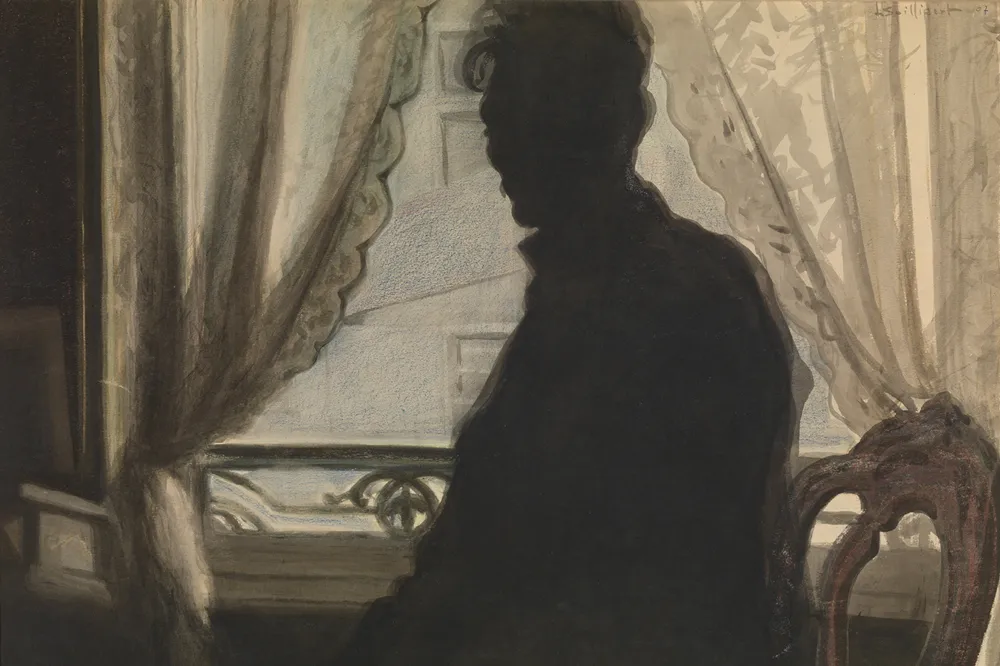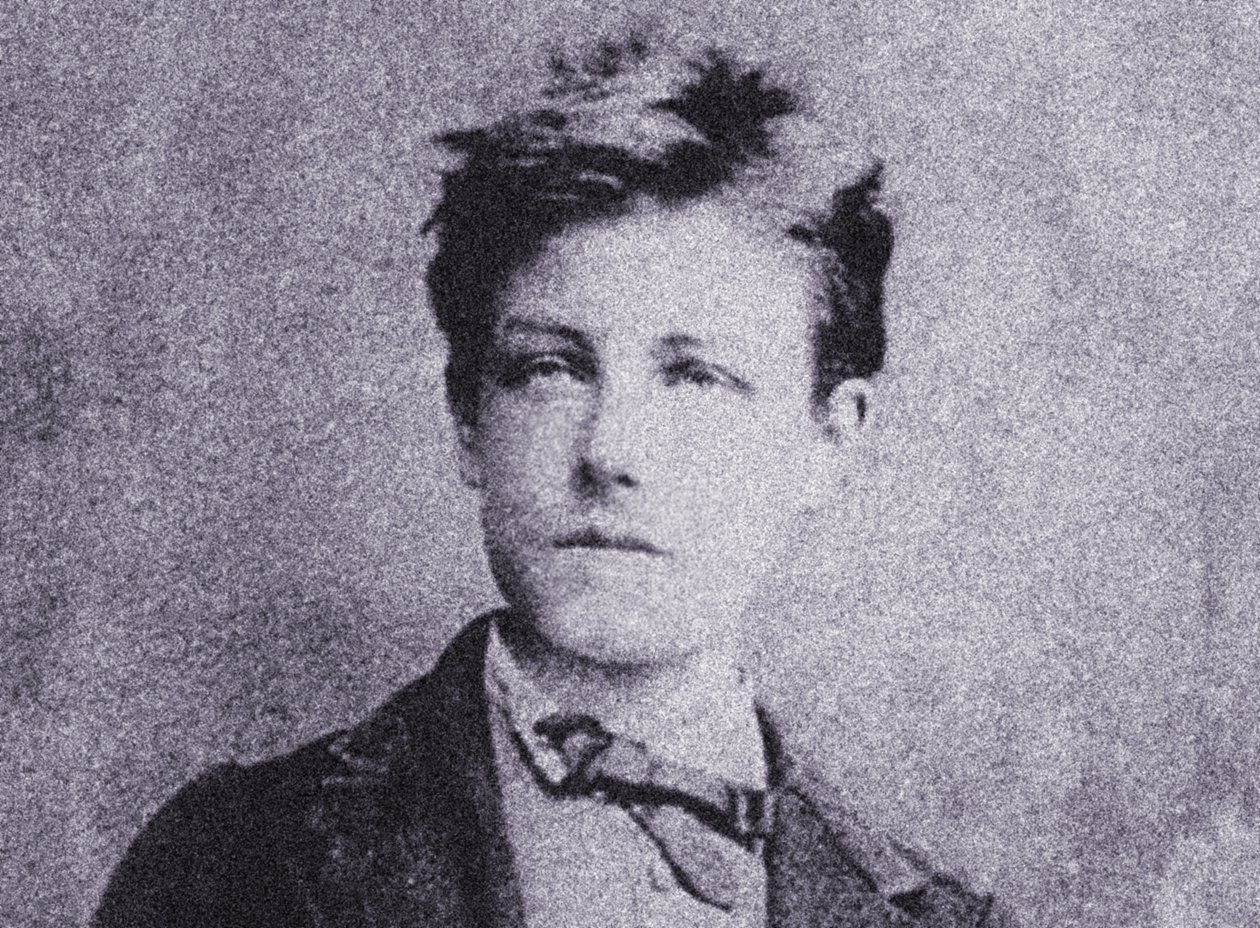If interested in a personal liturgy and reading, please consult this portal.
At the moment Arthur Rimbaud entered this world, not only was a veil torn open, but an altar was ignited in flesh itself. His natal chart is not mere biographical decoration, but wound, and explosion. To understand the rare intensity of his path, it is imperative to return to the operative matrix of Hellenistic astrology: the Whole Sign Houses system. This is not a matter of technical preference, but a way to restore to the reading of destiny the sharpness with which it was dreamed by the ancients.
The Whole Sign System: Return to the Original Temple
In the ancient zodiac, each sign was an inviolate temple. The Whole Sign House system, where each house matches an entire sign, is the method that presided over astrology from Alexandria to Byzantium, from Valens to Firmicus, from Zosimos to Ficino. This approach restores clarity to the sky, eliminating the modern fragmentation that dissolves boundaries and erases symbols. In Whole Signs, the 1st House is not a mere slice or shared scenario: it is a total world, a gateway for the daimon, a stage for epiphanies. It was this method that guided magi, poets, and sages to see the ascendant as the place where heaven becomes flesh, where the possible becomes destiny, where biography turns into a ritual of fire. In Rimbaud’s case, any other system would pale in truth: only Whole Signs reveal the size of the abyss and the brilliance of his 1st House, marking it as a field of absolute combustion
At the heart of Rimbaud’s chart, the 1st House in Libra transforms all fire into dialogue, every wound into a mirror, every desire into a search for an Other, either real or ideal. Libra, ruled by Venus, is not simply the sign of balance or beauty, but the force of contrast, confrontation, and dynamic tension between opposites. To have the first house in Libra is to be born under the sign of alterity: to exist is always to reflect, to seek oneself in the gaze of another, to burn at the threshold between self and world. For Rimbaud, every passion, every impulse, every creation is marked by this structure: nothing happens in isolation; everything is “in relation.” The Self is a stage for dramas that only fulfil themselves in the encounter with the Other, whether lover, rival, Mother, God, word, or crowd. Identity is always a passage, a pact, a tense negotiation between the desire for fusion and the need for rupture.
Libra is also the sign of civilisational scandal: at its best, it challenges the norm, exposes false harmony, and forces a rebalancing; at its worst, it can hesitate between extremes, never resting, always oscillating between abyss and harmony.
The 1st House: The Burning Sanctuary and Flesh as Oracle
When so many planets and lots converge in the 1st House, we are not facing a mere map, rather a laboratory of transmutation. The Ascendant, in Hellenistic tradition, is “hê hôra”; the supreme hour when destiny descends into matter. Rimbaud’s 1st House is a sanctuary in permanent eruption, without veils, without reserve. Here, Sun, Moon, Venus, Lot of Spirit, Lot of Necessity, Lot of Eros, and Lot of the Mother converge as if all the gods decided to be born at the same instant, through the same body. The result is not only singularity, but over-exposure, hypersensitivity, a genius impossible to domesticate.
In this context, the 1st House does not protect: it exposes. Rimbaud, from the beginning, becomes a radical medium, for whom to live is always to be uncovered, always at the threshold of scandal and revelation.

Sun and Moon in the 1st House: The Drama of Self Made Cosmos
To have both Sun and Moon in the 1st House, especially in Libra, is to live under a double gaze: one of self-assertion, the other of alterity. The Sun, centre of consciousness and power, becomes impossible to conceal: the Self is forced into protagonism; every gesture carries a halo or a scar, but never in comfortable solitude, always in tension with the presence of the Other, always theatrical, always exposed to the tribunal of relationship. The Moon, receptor and matrix, registers everything, including sensations, traumas, visions. But does so with Libra’s reflection, seeking to mirror and be mirrored. In Rimbaud, this manifests as an incapacity for masks: every emotion, every intuition, every wound is visible, inescapable, matter for creation and destruction, always in relation.
Sun and Moon side by side give him the nature of the “eternal adolescent” and the “seer-poet,” always on the razor’s edge between hybris and abandonment, between act and reception, between fascination and exile. It is as if the whole cycle of life, birth, suffering, desire, death, had to be enacted in the first person, yet always waiting for the Other who witnesses or defies.
Under Whole Signs and the Venusian aegis of Libra, there is nowhere to hide. The entire stage is the 1st House, but the stage is also a mirror, and the audience is the world.
Venus in the 1st House: Flesh and Pleasure as Seal and Trial
Venus, goddess of desire and ruler of Libra, flourishes here as both flower and blade, gift and ordeal. In Rimbaud’s horoscope, this transforms the body into an erotic altar, a site of pleasure, but also of torment and exile. Desire for him is never merely personal: it is cosmic, excessive, revolutionary, but always crossed by the need for the response of the other, by the tension between giving and receiving, between seducing and being seduced.
Venus here imposes the necessity of seducing and being seduced by destiny itself. The search for pleasure is inseparable from the search for the absolute, but the absolute only lived in contrast, in provocation, in shared scandal. In love, as in poetry, Rimbaud is incapable of compromise. He needs to lose himself, to burn, to transform every relationship into combustion and every word into revelation. The body is the lab of the word; desire is the engine of visionary experience, always staged on the relational theatre of Libra.
Venus in the 1st House makes sensuality not an ornament but a vocation, a wound, and a public judgement.
Lot of Spirit in the 1st House: The Raw Channel of Divine Breath
Vocatus atque non vocatus, Deus aderit
The Lot of Spirit, in Hermetic tradition, marks the point where the daimon touches the flesh. Here, in the 1st House of Libra, there are no intermediaries: Spirit passes through Rimbaud like an unfiltered lightning bolt, but also as a message that demands to be heard by another, answered, recognised. It is the condition of the seer-poet: everything he sees, feels, intuits, must be immediately channelled and made word, but also shared, communicated, exposed.
Life becomes an oracle: there is no choice, no defence, Spirit demands to be expressed. Inspiration is possession. The body is a mirror without a veil, vulnerable to divine light and fire, to the risk of madness, to the fascination of the abyss, but also to the gaze of the other, to the judgement of the Other, to the tribunal of relationship. Rimbaud does not write poems: he is written by them. The 1st House here is an altar of invocation and the Lot of Spirit is a seal of vocation. But it is always a vocation staged, always offered to the world as provocation and appeal.
Lot of Necessity in the 1st House: The Hunger That Is Never Quenched
Necessity, as a lot, expresses what can never be appeased in this life. In Rimbaud’s 1st House, it becomes an inextinguishable vital urgency, intensified under Libra’s aegis: one is never alone, never sufficient, never finds quietude, for desire is always a response to the void of the Other, to the lack of the world, to the absence of impossible balance. Every verse is an attempt to quench thirst; every act is a cry against finitude. But nothing suffices. No rest is possible. Poetry itself becomes a path of hunger: everything lived is immediately lost; everything dreamed demands more, more relation, more conflict, more shared scandal, more shared redemption. Rimbaud lives Tantalus’s condemnation: always on the brink of ecstasy, always denied repose, always seeking, in the Other, the reconciliation the 1st House of Libra promises and eternally refuses.

Lot of Eros in the 1st House: Desire as Cosmic Law
Eros, in the 1st House and under Libra, transforms desire into the matrix of identity. It is not merely to love: it is to be Love in perpetual act, to burn from the inside out, but also to require a response, to be desire made flesh and mirror. Rimbaud’s eroticism is Orphic, orgiastic, destructive. There is no separation between creation, desire, and violence, but everything is staged in the theatre of relation, where the other is always accomplice and antagonist, witness and executioner, lover and rival. The body is a ritual space: every erotic experience is initiation, every passion is crossed by the sacred and the forbidden, but all occurs “between.” Eros in the 1st House of Libra is the gift and the curse of never escaping one’s own vital voltage and always needing the Other for desire to be consummated. There is no rest, no mediocrity: only excess, only surrender, only public vertigo. The poet becomes the messenger of primordial desire: to live is to burn, but never alone.
Lot of the Mother in the 1st House: The Wound and the Myth of Return
Finally, the Lot of the Mother in this house seals the phantasmal presence of the maternal: the original wound, nostalgia, bottomless abyss, now aggravated by Libra’s desire to return to the paradise of the Other, to repair the loss, to restore primordial balance. Rimbaud is haunted by the myth of return to the archetypal Mother, whether in lovers or in poetry. His entire oeuvre is an attempt to name or redeem absence, to heal the wound of birth, to reverse fundamental orphanhood, but always projected, staged, sought in the Other, in the world, in the shared word. The 1st House makes this wound visible: nothing is forgotten, nothing is healed, only transformed into word and vision. The Lot of the Mother is mirror and wound, loss and promise. Libra is always the altar of this impossible quest.
Conclusion: The Labyrinth in Flames and the Mirror Without Rest
Rimbaud’s astrological profile, read with the rigour of Whole Signs, and even more so through the lens of the 1st House in Libra, reveals a being destined for over-exposure, excess, the rite of the impossible, the traversal of the mirror. Everything plays out in the 1st House: light and shadow, body and Spirit, desire and hunger, abandonment and revelation. But nothing is lived alone. Rimbaud does not belong to the world: he is traversed by it, wounded and blessed by his own intensity, yet in need of the Other, the World, the Reader, the Lover, the Mother, the Rival. The alchemist-poet is born sealed by all gods and all longings; he lives as a wandering altar, sacrificing skin to the word, making his very existence a pilgrimage without shelter or rest. Rimbaud’s fire is the world’s mirror: nothing is granted in small doses, nothing is withheld. His 1st House in Libra is sanctuary, cross, blade, theatre, tribunal, and altar.
Whoever contemplates this sky understands why no other poet has burned so much and why there will never be another quite like him.
If interested in a personal liturgy and reading, please consult this portal.
